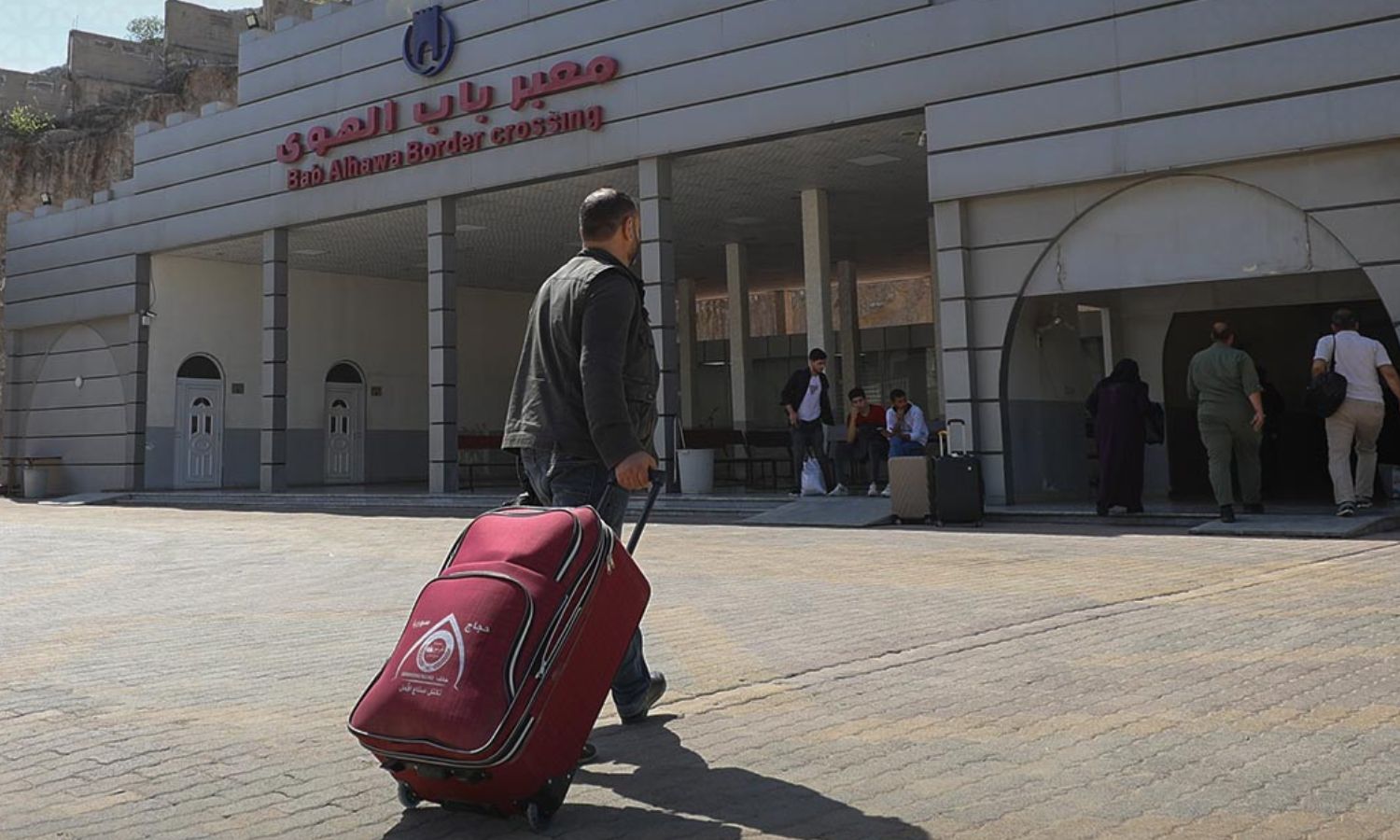



Idlib – Anas al-Khouli
Abdullah al-Mohammed’s life turned into “hell” after his successful business project began to bear fruit and his living conditions improved in Turkey. His dreams were shattered when he was forcibly deported to Idlib, causing his business to close and leaving him back to square one.
Al-Mohammed (45 years old) from rural Aleppo sought refuge in Turkey in 2015. He lived in Gaziantep province with his family, which includes his wife and three children. He started working in one of the plastic factories until he managed to sell all his property in Syria. He then opened a supermarket, freeing him from arduous work and providing a suitable income.
Last June, while returning home from his shop at night, he was surprised by a Turkish police patrol that took him to the immigration department despite having legal documents and not committing any violations.
Al-Mohammed remained in the immigration office until morning when an immigration officer canceled his temporary protection card (kimlik), forced him to sign “voluntary return” papers, and then sent him to a deportation center and finally to northern Syria.
In his talk with Enab Baladi, al-Mohammed described how his life turned into a “nightmare,” losing everything he owned in a moment, as he had invested all his money in his now-closed business for two months. He is currently trying to find legal ways to sell the store with minimal losses through lawyers.
What troubles al-Mohammed the most is the dispersion of his family, as his wife and children remain in Turkey. He is uncertain whether to seek asylum elsewhere or bring them to northern Syria, where he is staying at a friend’s house in Idlib, describing the living situation as “deteriorating.”
Al-Mohammed’s plight is exacerbated by the lack of any organization or entity to help the deportees, whether in providing temporary shelter or job opportunities. Many of them leave behind wives and children needing support.
Deportees from Turkey suffer from “miserable” conditions in the absence of humanitarian organizations to care for or help them secure shelter for themselves and their families in northern Syria. Many arrive without any belongings due to their sudden forced deportation.
Additionally, northern Syria generally suffers from unemployment, a lack of job opportunities, and low wages for workers, which in the best cases do not exceed 100 Turkish liras per day. The deportees find themselves in a “catastrophic” situation, without any hope of securing a decent life.
Abdul Jalil al-Mousa, another deportee from Turkey, roams the streets without a shelter, looking for work to support himself and his family who remained in Turkey.
Al-Mousa told Enab Baladi that deportees from Turkey return to square one. When they are forced into northern Syria, they have no place to shelter them, no piece of furniture to sleep on, no money to buy what they need, and no job opportunities.
He mentioned that during the detention of a deportee, they are not allowed to return to their homes to pack their belongings or transfer any of their properties from Turkey to northern Syria, whether household furniture, tools, or work equipment, exacerbating their suffering.
Mahamoud al-Obaid (37 years old) was deported by Turkish authorities in early April along with his wife and two children. They are staying with relatives in Idlib and have lost hope of finding a camp to house them or a job to provide an income.
Al-Obaid, from rural Homs, said Turkish authorities deported him while he was trying to update his personal documents. The officer canceled the “temporary IDs,” and the family was immediately deported to Idlib, finding themselves on the roadside at Bab al-Hawa without shelter, money, or belongings.
He is staying with relatives, and he attempted to contact some humanitarian organizations in the hope of securing even a tent for his family for a temporary period in one of the camps. However, all his efforts were unsuccessful. He has also been seeking employment, but to no avail.
Several deportees from Turkey, whom Enab Baladi met, called on humanitarian organizations and active entities in the region to look into their situation and help secure some essential life needs, such as a place to house their families and some simple furniture, even temporarily, until solutions can be found to sell their properties in Turkey or transfer their businesses to northern Syria.
The border crossings with Turkey witness daily movements of Syrians being forcibly deported from Bab al-Hawa, Bab al-Salamah, Tal Abyad, and Jarablus.
Deportations violate international law and the temporary protection law that protects Syrians in Turkey.
In contrast, the Turkish government denies the existence of forced deportations, describing its policy as a “model” in handling refugees.
Northwestern Syria is home to 5.1 million people, 4.2 million of whom need assistance, and 3.4 million suffer from food insecurity. According to the UN, 3.4 million are internally displaced, and 2 million live in camps, while local statistics indicate a population of 5.5 to 6 million people.
Mazen Alloush, the media office director at the Bab al-Hawa border crossing, told Enab Baladi that the number of returnees from Turkey to northern Syria through the crossing in the first half of 2024 reached 24,334 citizens, distributed among 11,973 “voluntary returnees” and 12,361 forcibly deported.
Alloush added that the number of forcibly deported persons during the first six months of this year exceeded the number of deportees in the same period in 2023.
In 2023, Bab al-Hawa saw the crossing of 20,319 people from Turkey to the north, including 11,079 “voluntary returnees” and 7,653 forcibly deported individuals, while 1,587 people entered under the category of “recently deported” – those who entered Turkey illegally (through smuggling) and were recently caught near the border and sent back.
These statistics apply only to the deportees through the Bab al-Hawa crossing, excluding other crossings in rural Aleppo and Tal Abyad controlled by the Syrian Interim Government.
if you think the article contain wrong information or you have additional details Send Correction